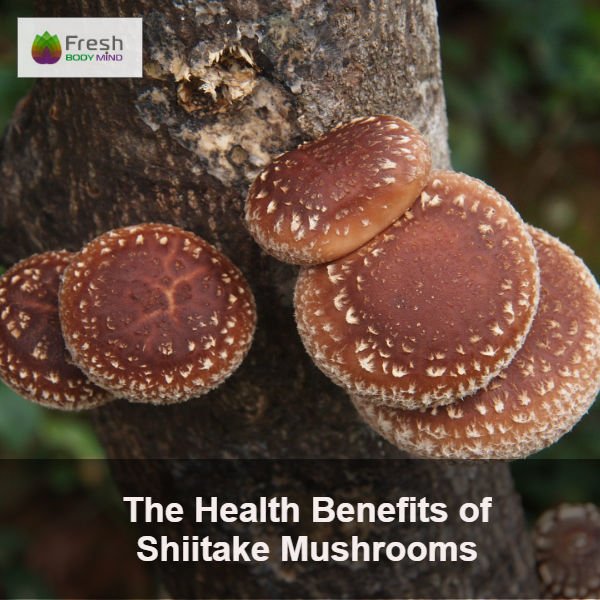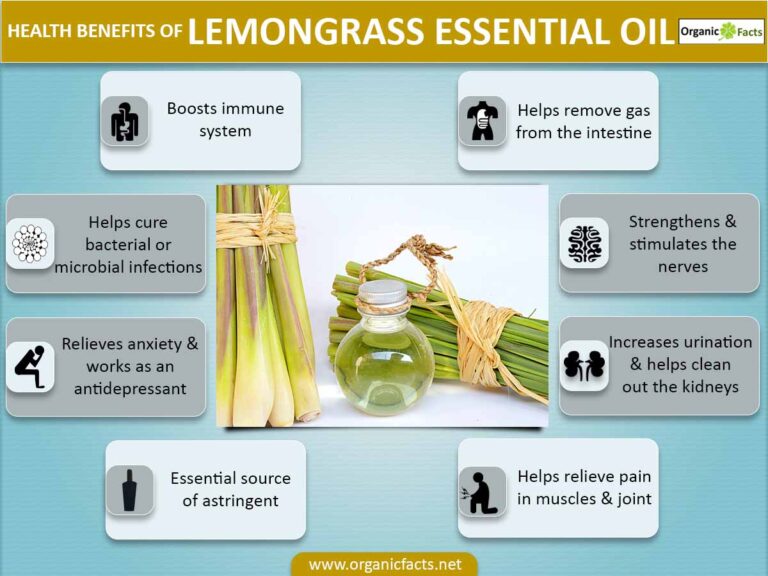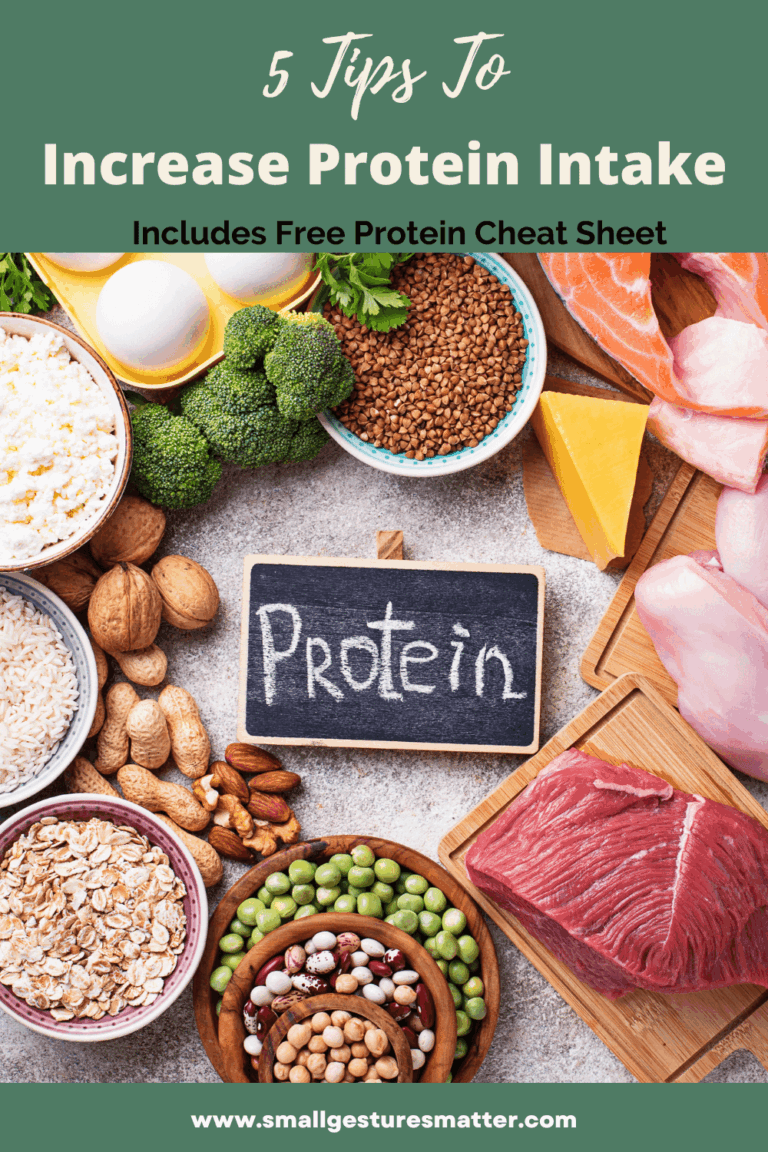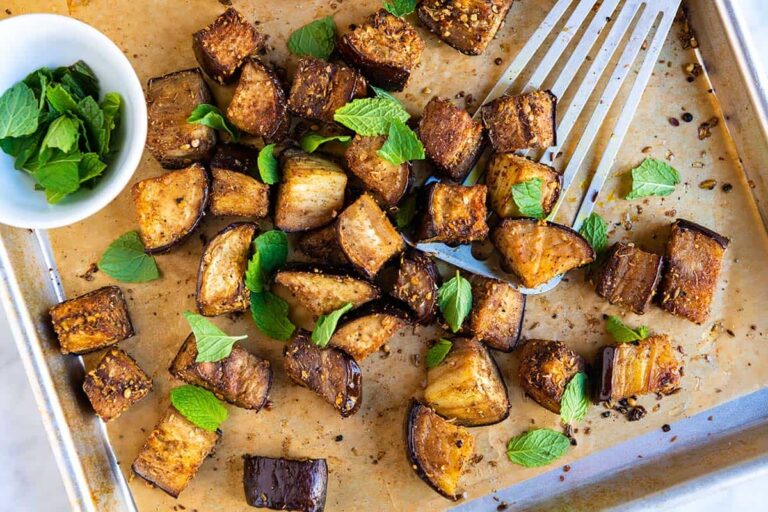Shiitake Secrets: Unlocking the Amazing Health Benefits of This Popular Mushroom
In the verdant embrace of ancient forests, where sunlight filters through a canopy of leaves and the air hums with the quiet symphony of nature, a humble organism has for millennia held secrets of profound health and vitality. This is the story of the shiitake mushroom (Lentinula edodes), a culinary star and a medicinal marvel, whose unassuming cap and earthy aroma belie a powerhouse of therapeutic compounds. From the mist-shrouded mountains of East Asia to the bustling kitchens and wellness aisles of the modern world, shiitake has captivated humanity, not just for its rich, umami flavor, but for its extraordinary capacity to nourish, heal, and protect.
For centuries, this revered fungus has been a cornerstone of traditional Asian medicine, whispered about in hushed tones among healers and revered as an elixir of longevity. Today, modern science is systematically peeling back the layers of its mystique, revealing a complex biochemical profile that validates the wisdom of our ancestors. Beyond its delectable texture and versatile culinary applications, shiitake mushrooms offer a veritable treasure chest of health benefits, ranging from immune system fortification and cardiovascular support to potential anti-cancer properties and brain health enhancement.
This article embarks on a journey to unravel the intricate "Shiitake Secrets," exploring its storied past, its remarkable biological composition, and the scientific evidence that underpins its growing reputation as a superfood. We will delve deep into the mechanisms by which this extraordinary mushroom interacts with our physiology, offering a comprehensive look at how it can contribute to a healthier, more vibrant life. For the knowledgeable audience, we will navigate the scientific intricacies with precision, illuminating the biochemical pathways and clinical implications that make shiitake far more than just a culinary ingredient; it is a profound gift from the natural world, waiting to unlock a spectrum of amazing health benefits.
A Journey Through Time: The Ancient Wisdom of Shiitake
The story of the shiitake mushroom begins thousands of years ago in the mountainous regions of East Asia, primarily Japan and China. Its name itself, "shiitake," is derived from the Japanese words "shii" (referring to the Castanopsis cuspidata tree, a common host for the mushroom) and "take" (meaning mushroom). While its precise origins are shrouded in the mists of antiquity, historical records suggest that shiitake cultivation dates back at least to the Song Dynasty in China (960-1279 AD), and possibly even earlier. Legends speak of it being cultivated by the Chinese more than 2,000 years ago, making it one of the oldest cultivated mushrooms in the world.
Initially, shiitake was primarily foraged from the wild, growing on decaying hardwood trees. Its potent medicinal properties were quickly recognized by traditional healers. In Chinese Traditional Medicine (TCM) and Japanese Kampo medicine, shiitake was prescribed for a wide array of ailments. It was believed to boost "qi" (life force), improve circulation, enhance longevity, and treat conditions ranging from colds and flu to stomach ailments and even certain forms of cancer. Its ability to strengthen the immune system was particularly valued, especially during epidemics.
The evolution from wild foraging to systematic cultivation was a pivotal moment in shiitake’s history. Early cultivation methods involved inoculating logs with shiitake spores, a practice that required significant skill and patience. These traditional log cultivation techniques, still used today for producing premium-quality shiitake, mimic the mushroom’s natural growth environment, allowing it to slowly absorb nutrients and develop its complex flavor and medicinal compounds. Over centuries, these techniques were refined and passed down through generations, making shiitake a staple in both the diet and the apothecary of East Asian cultures.
As global trade routes expanded, shiitake began its slow journey westward. However, it wasn’t until the latter half of the 20th century, with advancements in mycology and agricultural technology, that shiitake cultivation became more widespread globally, particularly through the development of sawdust block cultivation. This innovation made shiitake more accessible and affordable, transforming it from an exotic specialty to a popular ingredient in diverse cuisines and a subject of intense scientific scrutiny in the pursuit of natural health solutions. The ancient wisdom, once confined to a few regions, was now poised to reveal its secrets to the entire world.
The Biological Marvel: What Makes Shiitake Tick?
To truly appreciate the health benefits of shiitake, one must first understand its intricate biological composition. Lentinula edodes is a saprophytic fungus, meaning it thrives on decaying organic matter, primarily hardwood trees. This process of decomposition is not just ecological; it is also the mechanism by which shiitake synthesizes and concentrates an astonishing array of nutrients and bioactive compounds from its substrate.
Macronutrient Profile:
Shiitake mushrooms are an excellent source of macronutrients, especially considering their low caloric density. They are:
- Low in Calories: A generous serving provides minimal calories, making them ideal for weight management.
- Rich in Fiber: Both soluble and insoluble fibers contribute to digestive health, satiety, and blood sugar regulation.
- Good Source of Plant-Based Protein: While not a complete protein, shiitake offers a respectable amount of amino acids, contributing to overall protein intake, particularly for vegetarians and vegans.
- Complex Carbohydrates: Provide sustained energy without rapid blood sugar spikes.
- Very Low in Fat: Primarily unsaturated fats, with negligible saturated fat.
Micronutrient Profile:
Beyond the macronutrients, shiitake mushrooms are a powerhouse of essential vitamins and minerals:
- B Vitamins: They are particularly rich in Riboflavin (B2), Niacin (B3), Pantothenic Acid (B5), Pyridoxine (B6), and Folate (B9). These vitamins are crucial for energy metabolism, nerve function, DNA synthesis, and red blood cell formation.
- Vitamin D: Uniquely among plant-based foods, shiitake mushrooms can produce significant amounts of Vitamin D when exposed to ultraviolet (UV) light. This makes them a valuable source of D2 (ergocalciferol), essential for bone health, immune function, and mood regulation.
- Minerals: Shiitake are an excellent source of:
- Copper: Vital for iron metabolism, energy production, and connective tissue formation.
- Selenium: A potent antioxidant and crucial for thyroid function and immune health.
- Zinc: Essential for immune function, wound healing, and DNA synthesis.
- Manganese: Involved in bone formation, carbohydrate and fat metabolism, and antioxidant defense.
- Potassium: Important for blood pressure regulation and fluid balance.
Key Bioactive Compounds: The True Secrets:
The profound health benefits of shiitake largely stem from its unique blend of bioactive compounds, many of which are exclusive to this fungal species or highly concentrated within it. These are the true "secrets" unlocking its therapeutic potential:
-
Lentinan (Beta-Glucan): This is arguably the most studied and significant compound in shiitake. Lentinan is a complex polysaccharide (specifically a beta-glucan) known for its remarkable immunomodulatory properties. It doesn’t directly kill pathogens but rather activates various immune cells, including macrophages, natural killer (NK) cells, T-lymphocytes, and B-lymphocytes, enhancing the body’s natural defense mechanisms. Its anti-tumor effects, often explored as an adjunctive therapy, are primarily attributed to this immune system activation.
-
Eritadenine: This fascinating compound, a purine derivative, is a unique sterol found in shiitake. Eritadenine is renowned for its lipid-lowering effects, particularly its ability to help reduce serum cholesterol levels by inhibiting the absorption of cholesterol in the gut and promoting its excretion.
-
KS-2 and AC2P: These are other potent polysaccharides, similar to lentinan, that contribute to shiitake’s immune-boosting and potential anti-cancer effects. They work synergistically to enhance the body’s immune surveillance.
-
LEM (Lentinula edodes Mycelia): An extract from the shiitake mycelia (the vegetative part of the fungus), LEM contains a complex mixture of polysaccharides, glycoproteins, and other compounds. It has been extensively researched, particularly in Japan, for its immune-enhancing and antiviral properties.
-
Ergothioneine: Often dubbed the "master antioxidant," ergothioneine is a sulfur-containing amino acid that cells actively transport and concentrate, particularly in tissues prone to high oxidative stress like the liver, kidneys, and brain. It plays a crucial role in protecting cells from oxidative damage, a key factor in aging and chronic diseases. Shiitake is one of the richest dietary sources of this unique antioxidant.
-
Triterpenes and Sterols: These compounds, including ergosterol (a precursor to Vitamin D2), contribute to shiitake’s anti-inflammatory, antioxidant, and cholesterol-lowering effects.
-
Amino Acids and Peptides: Beyond the basic protein content, shiitake contains a range of free amino acids and small peptides that contribute to its flavor (umami) and may have additional physiological roles.
The synergistic interaction of these macronutrients, micronutrients, and bioactive compounds creates a powerful ensemble, making shiitake a truly holistic food capable of influencing multiple physiological pathways simultaneously. This complex interplay is what unlocks the "amazing health benefits" that have been celebrated for centuries and are now being meticulously validated by modern scientific inquiry.
Unlocking the Health Vault: Deep Dive into Benefits
With its impressive array of compounds, shiitake mushroom is a true powerhouse of health benefits. Let’s delve into the specific ways it supports and enhances human well-being.
Immune System Fortification: The Body’s Shield
The immune-boosting prowess of shiitake is perhaps its most celebrated and well-researched attribute. At the heart of this capability lies lentinan, a beta-glucan polysaccharide. Unlike simple immune stimulants that might over-activate the immune system, lentinan is an immunomodulator. This means it helps to balance and optimize immune responses rather than merely revving them up.
Mechanism of Action:
Lentinan interacts directly with immune cells, particularly macrophages, natural killer (NK) cells, and T-lymphocytes.
- Macrophages: These "scavenger" cells engulf pathogens and cellular debris. Lentinan enhances their phagocytic activity and stimulates them to produce cytokines (signaling molecules) like interleukins and tumor necrosis factor-alpha (TNF-α), which orchestrate other immune responses.
- Natural Killer (NK) Cells: These lymphocytes are crucial for detecting and destroying virally infected cells and early-stage cancer cells without prior sensitization. Lentinan significantly boosts NK cell activity, making the body more adept at fending off threats.
- T-Lymphocytes: Lentinan can influence the maturation and activity of T-cells, which are central to cell-mediated immunity, helping the body recognize and remember specific pathogens.
- B-Lymphocytes: While less direct, lentinan’s overall immune orchestration can indirectly support B-cell activity, which is responsible for antibody production.
Clinical Implications:
- Anti-viral and Anti-bacterial: By enhancing general immune surveillance, shiitake helps the body combat common infections like colds, flu, and other viral invaders. Studies have shown its potential to mitigate the severity and duration of upper respiratory tract infections.
- Post-Chemotherapy Support: In traditional and modern adjunctive therapies, lentinan has been used to help restore immune function in patients undergoing chemotherapy or radiation, which often suppress the immune system. By boosting white blood cell counts and immune cell activity, it can reduce the risk of opportunistic infections.
- Inflammation Modulation: While boosting immune activity, shiitake also exhibits anti-inflammatory properties. This is crucial because chronic inflammation is a driver of many diseases. By modulating cytokine production, shiitake can help bring the immune system back into balance, preventing excessive inflammatory responses.
Cardiovascular Health Guardian: A Heartfelt Ally
Heart disease remains a leading cause of mortality globally, making preventative strategies paramount. Shiitake mushrooms offer several mechanisms through which they can safeguard cardiovascular health.
Cholesterol Reduction:
- Eritadenine: This unique compound is a star player here. Eritadenine helps lower total cholesterol and particularly LDL ("bad") cholesterol levels. It achieves this by inhibiting cholesterol absorption in the gut and promoting its excretion. It also influences cholesterol metabolism in the liver.
- Fiber: The abundant dietary fiber in shiitake binds to bile acids in the digestive tract, which are made from cholesterol. This forces the liver to draw more cholesterol from the bloodstream to produce new bile acids, thereby lowering circulating cholesterol levels.
Blood Pressure Regulation:
- Potassium: Shiitake is a good source of potassium, an essential electrolyte that helps counterbalance the effects of sodium in the body, leading to better blood pressure control.
- Nitric Oxide Production: Some research suggests that shiitake compounds may support endothelial function, potentially enhancing the production of nitric oxide, a vasodilator that helps relax blood vessels and improve blood flow.
Antioxidant Protection:
- Ergothioneine and Selenium: These powerful antioxidants combat oxidative stress, which is a major contributor to atherosclerosis (hardening of the arteries). By neutralizing free radicals, they help prevent damage to blood vessel walls and the oxidation of LDL cholesterol, a critical step in plaque formation.
The Cancer Combatant (Adjunctive Role): A Promising Partner
The potential role of shiitake, particularly its lentinan component, in cancer prevention and as an adjunctive therapy, is one of the most exciting and actively researched areas. It’s crucial to emphasize that shiitake is not a standalone cancer cure, but its properties make it a valuable complementary tool.
Mechanisms Against Cancer:
- Immunomodulation: As discussed, lentinan significantly enhances the activity of NK cells, T-cells, and macrophages. These immune cells are vital for identifying and destroying cancerous cells and preventing tumor growth and metastasis. By strengthening the body’s intrinsic anti-cancer defenses, shiitake helps the immune system to recognize and eliminate abnormal cells more effectively.
- Direct Anti-tumor Effects: Some in-vitro and animal studies suggest that certain shiitake compounds may directly inhibit the proliferation of cancer cells, induce apoptosis (programmed cell death) in tumor cells, and inhibit angiogenesis (the formation of new blood vessels that feed tumors).
- Reduction of Chemotherapy Side Effects: In clinical trials, particularly in Japan, lentinan has been used to improve the quality of life for cancer patients undergoing conventional treatments. It can help mitigate some of the debilitating side effects of chemotherapy and radiation, such as immune suppression, fatigue, and digestive issues, by strengthening the immune system and supporting overall cellular resilience.
- Prevention: The potent antioxidant and anti-inflammatory properties of shiitake contribute to cancer prevention by protecting DNA from damage and reducing chronic inflammation, both of which are risk factors for cancer development.
While promising, more large-scale human clinical trials are needed to fully elucidate shiitake’s role in cancer treatment. Patients should always consult their oncologists before incorporating any new supplements into their treatment regimen.
Bone Health Ally: Building a Strong Foundation
Strong bones are fundamental to a healthy, active life, and shiitake mushrooms offer several key nutrients that contribute to skeletal integrity.
- Vitamin D: When exposed to UV light (either naturally from the sun or artificially in cultivation), shiitake mushrooms produce significant amounts of Vitamin D2 (ergocalciferol). Vitamin D is absolutely critical for calcium absorption in the gut and its incorporation into bone tissue. Without adequate Vitamin D, calcium cannot be effectively utilized, leading to weakened bones and increased risk of osteoporosis.
- Copper: This trace mineral is essential for the formation of collagen, a protein that provides the structural framework for bones and connective tissues.
- Zinc: Involved in bone mineral density and bone tissue regeneration.
- Manganese: Plays a role in the formation of bone cartilage and bone mineralization.
The synergistic action of these nutrients makes shiitake a valuable dietary addition for maintaining bone density and preventing age-related bone loss.
Brain Booster and Neurological Support: Fueling Cognitive Function
The intricate network of the brain demands a constant supply of nutrients and protection from oxidative stress. Shiitake mushrooms contribute to neurological health through several pathways.
- B Vitamins: The rich profile of B vitamins (B2, B3, B5, B6, folate) is crucial for optimal brain function. They are involved in:
- Neurotransmitter Synthesis: Essential for the production of neurotransmitters like serotonin, dopamine, and acetylcholine, which regulate mood, memory, and cognitive processes.
- Nerve Health: Support myelin sheath formation, which insulates nerve fibers and ensures efficient nerve signal transmission.
- Energy Production: B vitamins are cofactors in the metabolic pathways that convert food into energy, ensuring the brain, a highly energy-demanding organ, receives adequate fuel.
- Ergothioneine: This "master antioxidant" is particularly concentrated in tissues with high metabolic activity and susceptibility to oxidative stress, including the brain. It protects neurons from damage caused by free radicals, which is implicated in neurodegenerative diseases like Alzheimer’s and Parkinson’s.
- Anti-inflammatory Effects: Chronic low-grade inflammation in the brain (neuroinflammation) is a recognized factor in cognitive decline. Shiitake’s anti-inflammatory compounds can help mitigate this, supporting a healthier brain environment.
Emerging research is exploring the potential of shiitake compounds in protecting against age-related cognitive decline and supporting overall brain vitality.
Antioxidant Powerhouse: Shielding Cells from Damage
Oxidative stress, caused by an imbalance between free radical production and the body’s ability to neutralize them, is a fundamental driver of aging and a myriad of chronic diseases, including cancer, heart disease, and neurodegenerative disorders. Shiitake mushrooms are laden with potent antioxidants that actively combat this cellular damage.
- Ergothioneine: As mentioned, this unique sulfur-containing amino acid is a highly efficient antioxidant. Unlike many antioxidants that are consumed and then excreted, ergothioneine is actively transported into cells and accumulates in mitochondria, the powerhouses of the cell, where it provides robust protection against oxidative damage.
- Selenium: Shiitake is a good source of selenium, a trace mineral that is an essential component of several antioxidant enzymes, such as glutathione peroxidase, which play a critical role in detoxifying harmful compounds.
- Polyphenols and Flavonoids: While not as extensively studied in shiitake as in some other plant foods, these compounds also contribute to the mushroom’s overall antioxidant capacity.
By neutralizing harmful free radicals, shiitake helps protect cellular structures, DNA, and proteins from damage, thereby supporting overall cellular health and potentially slowing down the aging process.
Gut Health and Digestive Harmony: The Second Brain Connection
A healthy gut microbiome is increasingly recognized as central to overall health, influencing everything from immunity and metabolism to mood and cognitive function. Shiitake mushrooms contribute positively to gut health.
- Prebiotic Fiber: The abundant dietary fiber in shiitake acts as a prebiotic, meaning it feeds the beneficial bacteria (probiotics) residing in the gut. These bacteria ferment the fiber, producing short-chain fatty acids (SCFAs) like butyrate, acetate, and propionate. SCFAs are vital for the health of colon cells, reduce inflammation, and have systemic benefits for immunity and metabolism.
- Improved Microbial Diversity: Regular consumption of fiber-rich foods like shiitake can promote a more diverse and balanced gut microbiome, which is associated with better health outcomes.
- Digestive Regularity: The insoluble fiber in shiitake adds bulk to stool, promoting regular bowel movements and preventing constipation.
By fostering a thriving gut environment, shiitake indirectly supports a strong immune system, reduces systemic inflammation, and may even influence mood and mental well-being, highlighting the powerful gut-brain axis.
Anti-inflammatory Effects: Quelling the Internal Fire
Chronic low-grade inflammation is a silent threat, underpinning numerous modern diseases, from autoimmune disorders and metabolic syndrome to cardiovascular disease and certain cancers. Shiitake mushrooms possess compounds that can help temper this internal fire.
- Immunomodulation: By balancing immune responses, lentinan and other polysaccharides can prevent the overproduction of pro-inflammatory cytokines while supporting the production of anti-inflammatory ones. This fine-tuning helps to resolve inflammation rather than perpetuate it.
- Antioxidant Action: Oxidative stress and inflammation are closely linked. By reducing oxidative damage, shiitake’s antioxidants indirectly reduce the inflammatory cascade.
- Specific Compounds: Triterpenes and other sterols found in shiitake have also demonstrated direct anti-inflammatory properties in various studies.
Incorporating shiitake into the diet can contribute to a reduction in systemic inflammation, offering protective benefits against a wide range of inflammatory conditions.
Skin and Hair Vitality: Radiance from Within
The health of our skin and hair is often a reflection of our internal well-being. Shiitake mushrooms offer nutrients that support dermatological and hair health.
- Selenium: This mineral is crucial for skin elasticity and protection against UV damage. It also plays a role in healthy hair growth.
- Copper: Essential for collagen and elastin production, which are proteins vital for skin structure, firmness, and elasticity. Copper also contributes to hair pigment formation.
- B Vitamins: Support healthy cell turnover in the skin, help regulate oil production, and contribute to strong, vibrant hair.
- Antioxidants: Protecting skin cells from oxidative damage caused by environmental pollutants and UV radiation helps maintain a youthful appearance and prevents premature aging.
While research on direct skin and hair benefits from shiitake consumption is ongoing, its rich nutrient profile strongly suggests a supportive role in promoting a healthy, radiant complexion and robust hair.
From Forest to Fork: Cultivation, Preparation, and Culinary Delights
The journey of shiitake from its wild origins to our dinner plates is a testament to human ingenuity and appreciation for nature’s bounty. Understanding its cultivation and preparation enhances both its culinary and health benefits.
Cultivation Methods:
- Log Cultivation: This traditional method involves inoculating hardwood logs (oak, maple, beech, birch) with shiitake spores. The mushrooms grow slowly over 1-3 years, mimicking their natural environment. Log-grown shiitake are often considered superior in flavor, texture, and medicinal potency due to their slower growth and absorption of nutrients from the wood.
- Sawdust Block Cultivation: This modern method uses compressed blocks of sawdust, supplemented with grains and nutrients, as a substrate. It allows for faster growth, higher yields, and year-round production, making shiitake more accessible and affordable. While some argue log-grown shiitake have a richer flavor, sawdust-grown varieties are still highly nutritious.
Availability and Forms:
- Fresh: Widely available in most grocery stores, especially Asian markets. Look for firm caps, avoiding any sliminess or dark spots.
- Dried: A popular and convenient form. Dried shiitake have an even more intense umami flavor and longer shelf life.
- Powdered: Dried and ground into a powder, ideal for adding to soups, sauces, smoothies, or as a seasoning.
- Extracts and Supplements: Concentrated forms, often standardized for lentinan content, available in capsules or liquid form for therapeutic use.
Rehydrating Dried Shiitake:
This is a simple yet crucial step to unlock their full flavor and texture.
- Place dried shiitake in a bowl.
- Cover with hot (but not boiling) water.
- Soak for 20-30 minutes, or until soft and pliable.
- Squeeze out excess water. Reserve the soaking liquid – it’s packed with umami and nutrients, perfect for broths and sauces!
- Remove and discard the tough stems (they can be saved for stock). Slice or chop the caps as desired.
Culinary Versatility: The Umami Factor:
Shiitake mushrooms are celebrated for their rich, savory, and distinctive "umami" flavor – often described as the fifth basic taste, enhancing the deliciousness of many dishes. This umami comes from compounds like guanosine monophosphate (GMP) and glutamic acid.
- Soups and Broths: A foundational ingredient in miso soup, ramen, pho, and various Asian broths, lending depth and earthiness.
- Stir-fries: Their meaty texture holds up well to high heat, absorbing flavors beautifully.
- Sauces and Gravies: Minced shiitake adds a rich, savory base to vegetarian and meat-based sauces.
- Roasts and Stews: Can be added whole or sliced to provide a hearty, umami element.
- Side Dishes: Sautéed with garlic and herbs, they make a simple yet elegant side.
- Vegetarian Dishes: Their meaty texture makes them an excellent substitute for meat in many recipes.
- Tea: Dried shiitake can be steeped to make a nourishing and flavorful tea.
Tips for Maximizing Flavor and Nutrient Absorption:
- Don’t Overcook: While they can withstand cooking, overcooking can diminish their texture and some volatile compounds.
- Combine with Fat: Fat helps absorb fat-soluble vitamins (like Vitamin D) and flavor compounds. Sautéing in olive oil or butter is excellent.
- Sun Exposure: If using fresh shiitake, exposing them to direct sunlight (gills up) for 15-30 minutes before cooking can significantly boost their Vitamin D content.
Navigating the Shiitake World: Dosage, Safety, and Considerations
While shiitake mushrooms are a natural and generally safe food, it’s important to approach their consumption and supplementation with an informed perspective.
Typical Consumption Levels:
For general health maintenance and culinary enjoyment, incorporating shiitake into your diet a few times a week is beneficial. A typical serving might be 1/2 to 1 cup of fresh mushrooms or 1/4 to 1/2 cup of rehydrated dried mushrooms.
Supplements vs. Whole Food:
- Whole Food: Eating shiitake as a whole food provides a synergistic blend of all its nutrients and bioactive compounds, along with fiber. This is generally the preferred method for overall health and enjoyment.
- Extracts and Supplements: These offer a concentrated dose of specific compounds (like lentinan) and may be beneficial for targeted therapeutic uses, particularly when higher doses are required or when the individual cannot consume enough whole mushrooms. Always choose reputable brands that provide third-party testing for purity and potency.
Potential Side Effects and Precautions:
While shiitake is generally well-tolerated, some individuals may experience:
- Shiitake Dermatitis: A rare skin rash characterized by linear streaks of redness and itching, occurring after consuming raw or undercooked shiitake mushrooms. It typically resolves on its own within a few days to weeks. Thorough cooking usually prevents this reaction.
- Digestive Upset: Like any fiber-rich food, excessive consumption may lead to mild digestive issues such as bloating or gas in sensitive individuals.
- Allergies: Although uncommon, allergic reactions (skin rash, itching, swelling) can occur in individuals sensitive to mushrooms.
- Blood Thinning: Shiitake contains a small amount of Vitamin K, which plays a role in blood clotting. While the amount in whole food is unlikely to significantly interact with anticoagulant medications (like warfarin), individuals on blood thinners should consult their doctor before consuming large amounts of shiitake or taking concentrated supplements.
- Immune Conditions: Individuals with autoimmune diseases should exercise caution and consult a healthcare professional before taking immune-boosting supplements, as they could potentially exacerbate symptoms in some cases.
Quality Sourcing:
- Organic: Opt for organic shiitake to minimize exposure to pesticides and herbicides.
- Reputable Growers/Suppliers: For both fresh mushrooms and supplements, choose suppliers known for their quality control and sustainable practices.
Consulting Healthcare Professionals:
It is always advisable to consult a doctor or a qualified healthcare professional, especially if you have pre-existing medical conditions, are pregnant or breastfeeding, or are taking medications, before making significant dietary changes or starting any new supplement regimen. This is particularly important when considering shiitake for specific therapeutic purposes, such as cancer support.
The Future of Shiitake Research
The exploration into shiitake’s secrets is far from over. The scientific community continues to uncover new facets of this remarkable mushroom, with ongoing research focusing on several exciting areas:
- Targeted Therapies: Further studies are investigating the precise molecular mechanisms of lentinan and other compounds in specific cancer types and autoimmune diseases, aiming to develop more targeted and effective therapies.
- Neuroprotective Potential: Research into ergothioneine and other compounds is expanding, exploring their role in preventing and potentially treating neurodegenerative disorders like Alzheimer’s and Parkinson’s.
- Gut-Brain Axis: The intricate connection between gut health, immunity, and mental well-being is a burgeoning field, and shiitake’s impact on the microbiome and its subsequent effects on brain function and mood are areas of active investigation.
- Bioavailability and Synergism: Scientists are working to understand how different shiitake compounds are absorbed and utilized by the body, and how they interact synergistically to produce their profound health benefits. This includes optimizing extraction methods for supplements.
- Sustainable Cultivation: As the demand for shiitake grows, research into more sustainable and efficient cultivation methods, including genetic improvements to enhance beneficial compound production, is also ongoing.
These ongoing efforts promise to further unlock the deep well of knowledge held within the shiitake mushroom, potentially leading to new dietary recommendations, therapeutic applications, and a deeper appreciation for nature’s pharmacy.
Conclusion: A Testament to Nature’s Profound Wisdom
The journey through the "Shiitake Secrets" reveals a profound truth: sometimes, the most unassuming gifts from nature hold the greatest power. From its humble origins in ancient East Asian forests, shiitake has transcended its status as a mere culinary delight to emerge as a nutritional titan and a therapeutic marvel. Its story is one of enduring wisdom, where traditional knowledge meets cutting-edge science, each validating the other.
We have explored the intricate tapestry of its biological composition, uncovering the synergistic interplay of its macronutrients, micronutrients, and, most notably, its unique bioactive compounds like lentinan, eritadenine, and ergothioneine. These elements work in concert to fortify our immune defenses, guard our cardiovascular system, offer a promising adjunct in the fight against cancer, strengthen our bones, sharpen our minds, and shield our






